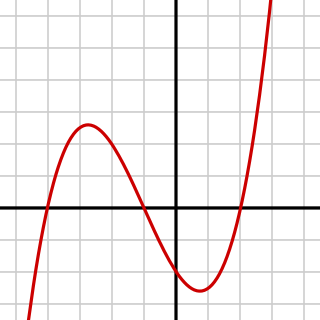This article needs additional citations for verification .(September 2015) |
This is an incomplete list of the tallest (pinnacle height > 200 metres) man-made structures of any kind that exist or existed in South America.
This article needs additional citations for verification .(September 2015) |
This is an incomplete list of the tallest (pinnacle height > 200 metres) man-made structures of any kind that exist or existed in South America.
| Structure | Country | Town | Height (m) | Height (ft) | Year built | Type | Remarks |
|---|---|---|---|---|---|---|---|
| Trelew Omega Tower | Argentina | Trelew | 366 m | 1201 ft | 1976 | Guyed mast | VLF-transmitter, insulated against ground, demolished in 1998 |
| Amazon Tall Tower Observatory | Brazil | 150 km NE of Manaus | 325 m | 1066 ft | 2015 | Guyed mast | Tower for atmospheric science |
| Gran Torre Santiago | Chile | Santiago | 300 m | 984 ft | 2013 | Skyscraper | |
| Amazonas Crossing of Tucuruí transmission line | Brazil | Almeirim | 295 m [1] | 968 ft | 2013 | Lattice tower (Electricity pylons) | 2 towers |
| Cerro Dominador Solar Thermal Plant | Chile | Santa Elena | 252 m | 827 ft | 2020 | Concrete Tower | Concentrated solar power plant tower |
| Buenos Aires Radio Rivadavia AM Broadcasting Mast | Argentina | Bella Vista | 252 m | 827 ft | ? | Guyed mast | Insulated against ground |
| CX-6 Radio Mast | Uruguay | Santiago Vázquez | 245 m | 804 ft | ? | Guyed mast | Insulated against ground |
| Orinoco River Crossing | Venezuela | Caroní | 240 m | 787 ft | 1990 | Lattice tower (Electricity pylons) | 3 pylons |
| Santa Fe Canal 13 TV Mast | Argentina | Recreo, Santa Fe | 236 m | 774 ft | 1965 | Guyed mast | |
| Bonaire TWR transmitter | Bonaire | Tera Kora | 231.6 m | 760 ft | ? | Guyed mast | Insulated against ground |
| Eldorado Do Sul RBS Radio Mast | Brazil | Eldorado Do Sul | 230 m | 755 ft | 1986 | Guyed mast | Insulated against ground |
| Torre Espacial | Argentina | Buenos Aires | 228 m | 748 ft | 1997 | Additionally guyed tower | |
| Parque Central Torre Este | Venezuela | Caracas | 225 m | 738 ft | 1979 | Skyscraper | |
| Parque Central Torre Oeste | Venezuela | Caracas | 225 m | 738 ft | 1984 | Skyscraper | |
| Brasilia TV Tower | Brazil | Brasilia | 224 m | 735 ft | 1967 | Lattice tower | |
| Monte Grande Radio Station, Large Masts | Argentina | Buenos Aires | 219 m | 719 ft | 1924 | guyed mast | VLF-transmitter LPZ, 2 masts insulated against ground, demolished |
| San Juan Radio Colón transmitter | Argentina | San Juan | 216 m | 709 ft | 1942 | Guyed mast | |
| General Pacheco Radio Nacional Radio Masts | Argentina | Buenos Aires | 215 m | 705 ft | ? | Guyed mast | |
| Torre TV Bandeirantes | Brazil | São Paulo | 212 m | 696 ft | 1995 | Lattice tower | |
| Mast of Radio 10 | Argentina | Buenos aires | 211 m | 693 ft | ? | Guyed mast | Insulated against ground |
| Cali Tower | Colombia | Cali | 211 m [2] | 689 ft | 1997 | Skyscraper | |
| Monte Grande Radio Station, Large Masts | Argentina | Buenos Aires | 210 m | 689 ft | 1924 | guyed mast | VLF-transmitter LPZ, 8 masts, demolished |
| Torre de la Escollera | Colombia | Cartagena | 206 m | 676 ft | 2007 | Skyscraper | Never finished, demolished |
| Rosario Telefe TV Mast | Argentina | Rosarios | 202 m | 663 ft | 2009 | Guyed mast |
Agnosticism is the view or belief that the existence of God, of the divine or the supernatural is unknown or unknowable. Another definition provided is the view that "human reason is incapable of providing sufficient rational grounds to justify either the belief that God exists or the belief that God does not exist."

The Latin cogito, ergo sum, usually translated into English as "I think, therefore I am", is the "first principle" of René Descartes's philosophy. He originally published it in French as je pense, donc je suis in his 1637 Discourse on the Method, so as to reach a wider audience than Latin would have allowed. It later appeared in Latin in his Principles of Philosophy, and a similar phrase also featured prominently in his Meditations on First Philosophy. The dictum is also sometimes referred to as the cogito. As Descartes explained in a margin note, "we cannot doubt of our existence while we doubt." In the posthumously published The Search for Truth by Natural Light, he expressed this insight as dubito, ergo sum, vel, quod idem est, cogito, ergo sum. Antoine Léonard Thomas, in a 1765 essay in honor of Descartes presented it as dubito, ergo cogito, ergo sum.
In law and government, de jure describes practices that are legally recognized, regardless of whether the practice exists in reality. In contrast, de facto describes situations that exist in reality, even if not formally recognized.

Existence is the state of being real or participating in reality. The terms "being", "reality", and "actuality" are often used as close synonyms. Existence contrasts with nonexistence, nothingness, and nonbeing. A common distinction is between the existence of an entity and its essence, which refers to the entity's nature or essential qualities.

The multiverse is the hypothetical set of all universes. Together, these universes are presumed to comprise everything that exists: the entirety of space, time, matter, energy, information, and the physical laws and constants that describe them. The different universes within the multiverse are called "parallel universes", "flat universes", "other universes", "alternate universes", "multiple universes", "plane universes", "parent and child universes", "many universes", or "many worlds". One common assumption is that the multiverse is a "patchwork quilt of separate universes all bound by the same laws of physics."

In metaphysics, ontology is the philosophical study of being. It investigates what types of entities exist, how they are grouped into categories, and how they are related to one another on the most fundamental level. Ontologists often try to determine what the categories or highest kinds are and how they form a system of categories that encompasses the classification of all entities. Commonly proposed categories include substances, properties, relations, states of affairs, and events. These categories are characterized by fundamental ontological concepts, including particularity and universality, abstractness and concreteness, or possibility and necessity. Of special interest is the concept of ontological dependence, which determines whether the entities of a category exist on the most fundamental level. Disagreements within ontology are often about whether entities belonging to a certain category exist and, if so, how they are related to other entities.
Theism is broadly defined as the belief in the existence of at least one deity. In common parlance, or when contrasted with deism, the term often describes the classical conception of God that is found in monotheism — or gods found in polytheistic religions — a belief in God or in gods without the rejection of revelation as is characteristic of deism.

In computer network communications, the HTTP 404, 404 not found, 404, 404 error, page not found, or file not found error message is a hypertext transfer protocol (HTTP) standard response code, to indicate that the browser was able to communicate with a given server, but the server could not find what was requested. The error may also be used when a server does not wish to disclose whether it has the requested information.

Determinism is the philosophical view that events are completely determined by previously existing causes. Deterministic theories throughout the history of philosophy have developed from diverse and sometimes overlapping motives and considerations. Like eternalism, determinism focuses on particular events rather than the future as a concept. The opposite of determinism is indeterminism, or the view that events are not deterministically caused but rather occur due to chance. Determinism is often contrasted with free will, although some philosophers claim that the two are compatible.
A principality can either be a monarchical feudatory or a sovereign state, ruled or reigned over by a regnant-monarch with the title of prince and/or princess, or by a monarch with another title considered to fall under the generic meaning of the term prince.
Solipsism is the philosophical idea that only one's mind is sure to exist. As an epistemological position, solipsism holds that knowledge of anything outside one's own mind is unsure; the external world and other minds cannot be known and might not exist outside the mind.
In predicate logic, an existential quantification is a type of quantifier, a logical constant which is interpreted as "there exists", "there is at least one", or "for some". It is usually denoted by the logical operator symbol ∃, which, when used together with a predicate variable, is called an existential quantifier ("∃x" or "∃(x)" or "(∃x)"). Existential quantification is distinct from universal quantification ("for all"), which asserts that the property or relation holds for all members of the domain. Some sources use the term existentialization to refer to existential quantification.

In mathematics, a differentiable function of one real variable is a function whose derivative exists at each point in its domain. In other words, the graph of a differentiable function has a non-vertical tangent line at each interior point in its domain. A differentiable function is smooth and does not contain any break, angle, or cusp.
The existence of God is a subject of debate in theology, philosophy of religion and popular culture. A wide variety of arguments for and against the existence of God or deities can be categorized as logical, empirical, metaphysical, subjective or scientific. In philosophical terms, the question of the existence of God or deities involves the disciplines of epistemology and ontology and the theory of value.
Āstika and nāstika are concepts that have been used to classify the schools of Indian philosophy by modern scholars, as well as some Hindu, Buddhist and Jain texts. The various definitions for āstika and nāstika philosophies have been disputed since ancient times, and there is no consensus. One standard distinction, as within ancient- and medieval-era Sanskrit philosophical literature, is that āstika schools accept the Vedas, the ancient texts of India, as fundamentally authoritative, while the nāstika schools do not. However, a separate way of distinguishing the two terms has evolved in current Indian languages like Telugu, Hindi and Bengali, wherein āstika and its derivatives usually mean 'theist', and nāstika and its derivatives denote 'atheism'. Still, philosophical tradition maintains the earlier distinction, for example, in identifying the school of Sāṃkhya, which is non-theistic, as āstika (Veda-affirming) philosophy, though "God" is often used as an epithet for consciousness (purusha) within its doctrine. Similarly, though Buddhism is considered to be nāstika, Gautama Buddha is considered an avatar of the god Vishnu in some Hindu denominations. Due to its acceptance of the Vedas, āstika philosophy, in the original sense, is often equivalent to Hindu philosophy: philosophy that developed alongside the Hindu religion.

In monotheistic belief systems, God is usually viewed as the supreme being, creator, and principal object of faith. In polytheistic belief systems, a god is "a spirit or being believed to have created, or for controlling some part of the universe or life, for which such a deity is often worshipped". Belief in the existence of at least one god is called theism.
In Buddhism, acinteyya (Pali), "imponderable" or "incomprehensible," avyākṛta, and atakkāvacara, "beyond the sphere of reason," are unanswerable questions or undeclared questions. They are sets of questions that should not be thought about, and which the Buddha refused to answer, since this distracts from practice, and hinders the attainment of liberation. Various sets can be found within the Pali and Sanskrit texts, with four, and ten or fourteen unaswerable questions.
Atheism, in the broadest sense, is an absence of belief in the existence of deities. Less broadly, atheism is a rejection of the belief that any deities exist. In an even narrower sense, atheism is specifically the position that there are no deities. Atheism is contrasted with theism, which in its most general form is the belief that at least one deity exists.
An ontological argument is a philosophical argument, made from an ontological basis, that is advanced in support of the existence of God. Such arguments tend to refer to the state of being or existing. More specifically, ontological arguments are commonly conceived a priori in regard to the organization of the universe, whereby, if such organizational structure is true, God must exist.
Rule 34 is an Internet meme which claims that Internet pornography exists concerning every possible topic. The concept is commonly depicted as fan art of normally non-erotic subjects engaging in sexual behavior and/or activity. It can also include writings, animations, images, GIFs and any other form of media to which the internet provides opportunities for proliferation and redistribution.